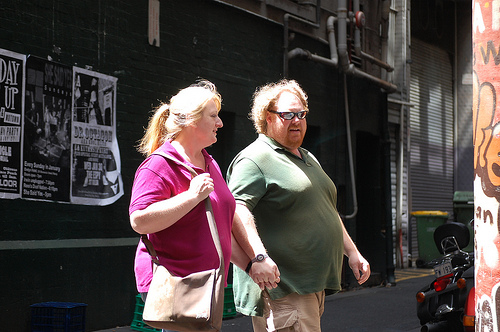G’Day, Mate!: Understanding Australian English

Australian English has an interesting history. The language began to become one of its own around 1788, after the foundation of the colony of New South Wales. This was a British penal colony where they sent convicts, like Cockneys from London and lower-class people from other large English cities. Settlement by others soon followed. About 25% of the convicts and settlers then came from Ireland, and many others were non-English speaking, such as from Wales and Scotland. Because of this, original development of the language had a large Cockney, Gaelic and Welsh influence.
After the the foundation of Australia as a penal colony, another wave of immigration went down under during the 1850s. Australian English thus went through a period of “Americanization,” taking on many American spellings of words and adaptations of certain slang phrases. In the nineteenth century, further Americanization had continued to expand, due to expansion of American media. Words like “freeway” and “truck” have become naturalized in Australian spoken word. There are some British words still used, such as “mobile” instead of “cell phone.”

There are then many unique phrases used only in Australia, not reflected by British or American English. For instance, in Australia and New Zealand, people will say “different to” instead of “different from.” You will hardly ever hear the word “friend”; Australians use the word “mate.” They also use some Irish words, such as “tucker” for food.
The three major subdivisions of Australian English are Broad, General and Cultivated. Most Australians speak General Australian; Cultivated Australian English is similar to British English.
Here is a dictionary of some Australian English slang words:
Ace!: Excellent!
Arvo: Afternoon
Avos: Avocados
Back of Bourke: Very far in distance
Barrack: To encourage
Bikkie: Biscuit
Billy: Teapot
Bities: Bugs that bite
Bloke: Guy, dude
Bludger: Slacker
Blue: Fight
Boozer: Pub
Bottle shop: Liquor store
Bush: The Outback; place where nobody resides
Bush telly: Campfire
Cactus: Dead
Cark it: To die
Chokkie: Chocolate
Chunder: Puke
Click: Kilometer
Cockie: Cockroach
Cozzie: Swimsuit
Cut lunch: Sandwiches
Daks: Trousers
Dill: Idiot
Docket: Receipt
Drongo: Idiot
Durry: Cigarette
Exy: Pricey
Feral: Hippie
Fossisk: Search, rummage
Full: Drunk
G’Day: Hello!
Galah: Fool
Greenie: Environmentalist
Hooroo: Goodbye
Jumbuck: Sheep
Knock: To criticize
Lippy: Lipstick
Lollies: Candy
Mate: Friend
Mickey Mouse: Very good
Milko: Milkman
Mozzie: Mosquito
Mystery bag: sausage
Not the full quid: Stupid
Oldies: Parents
Oz: Australia
Piss: Beer
Plonk: Bad wine
Polly: Politician
Rage: Party
Reffo: Refugee
Rellie: Someone in your family
Rubbish: To criticize
Sanger: Sandwich
Servo: Gasoline station
Spewin’: Angry
Strides: Trousers
Sunnies: Sunglasses
Tinny: Can of beer
Hit the turps: To get drunk
Ugh: Ugly (like the boots)
Unit: Apartment
Vejjo: Vegetarian
Whinge: Complain
Wog: Flu
Yakka: Work
